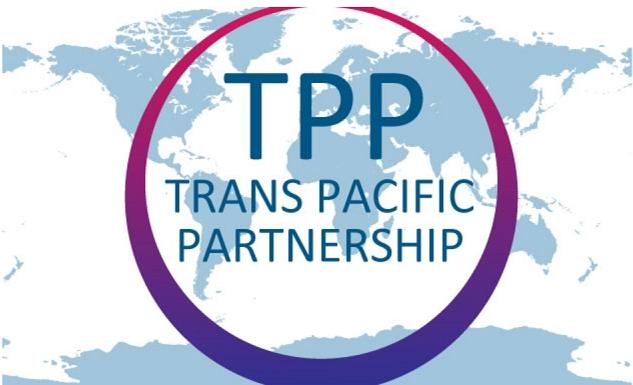Donald Trump Kills the Trans Pacific Partnership
February 10, 2017
On 1/23 President Donald Trump kept his promise to pull the U.S. from negotiations for the Trans Pacific Partnership or T.P.P. During his Presidential campaign he said “ [n]ot only will the T.P.P. undermine our economy, but it will undermine our independence.” The end of U.S in negotiations with the eleven other countries involved in the deal is a major step in Trump’s plans to “put America” first economically.
The T.P.P was originally drafted during President Obama’s tenure in office and saw the potential to be a trade agreement between 40% of the world economy, specifically, the nations of Japan, Malaysia, Vietnam, Singapore, Brunei, Australia, New Zealand, Canada, Mexico, Chile,and Peru. The TPP was intended to improve NAFTA( North American Trade Association) and American trade as a whole as well as expand U.S influence into the countries within the partnership. Political support for the T.P.P. is largely a result of the deal being potentially beneficial and to the U.S and to the U.S economy as well as the partnership giving us the ability to stand up for human rights within the countries in the partnership. The T.P.P. was intended to boost the economy and jobs in the U.S by increasing U.S. exports and therefore increasing American profits as well as increasing the jobs available here in the U.S. Another advantage of the partnership is the conclusion of tariffs against the U.S. by countries involved in the T.P.P. Such tariffs affect the sectors of manufacturing and agriculture and the removal of such tariffs would promote the purchase of U.S. goods on a larger global scale. Obligations set by the partnership would have eliminated child and forced labour in the involved nations as well as protecting the countries’ environments from dangerous manufacturing methods through the enforcing of better manufacturing techniques and the end of the use of dangerous chemicals.
Counterclaims to the creation of the T.P.P focus on the partnership potentially hurting U.S jobs and the American economy. The argument stems from the fact the U.S would have to end tariffs on the other countries and therefore promoting foreign products. Job loss was also predicted if the partnership were to be enacted, since U.S businesses would outsource jobs to countries with cheaper wages since importing costs would be lesser under the partnership. Additionally environmental protection under the bill is vague creating fear that some countries will manipulate the inspecifty of the partnership’s provisions and thus cause more damage to the environment. For example,the official document that outlines the partnership reads “To that end, each Party shall take measures to prevent the pollution of the marine environment from ships.” The lack of specificity in the bill namely the extent of the measures to be taken regarding the environment in addition to the unclear definition of pollution in the document lead, to concerns that the T.P.P.’s attempt to stop pollution is not actually going to accomplish anything.
Both the creation and the destruction of this bill has raised questions for the future of trade and the global and the U.S economies. Many questions have arose if this really will be the beginning of America putting itself first to will China step in where we did not thus expanding their influence? The direction of the U.S economy is at a crossroads and the effect of the TPP being struck down by President Trump is still not completely known.


